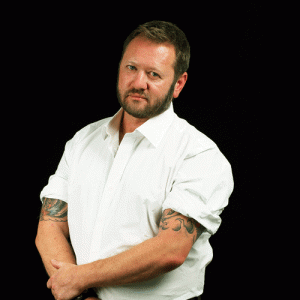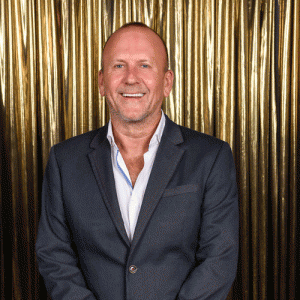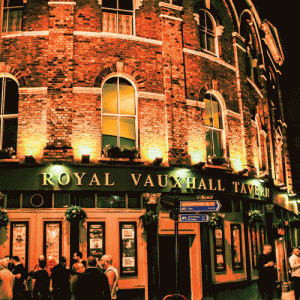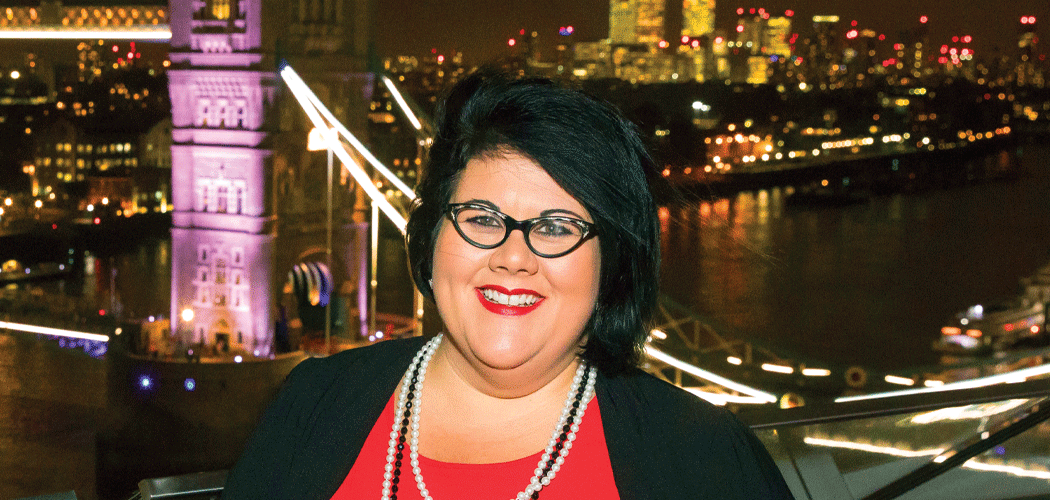Amy Lamé is London’s first Night Czar. Appointed by Mayor Sadiq Khan late last year, she is at the very heart of the conversation about venues under threat of closure in London. Having had a few months to settle into her new role, we asked some of the capital’s leading LGBT+ venue owners and managers which issues they would like Amy to tackle. Here are those questions and her response.
Gary Henshaw, Ku Group owner

Q1: Business rates are crippling all small independent businesses in the West End. The Ku Group has seen a staggering increase of over 42% on business rates, which start this month: 25% at Frith Street and 53% at Lisle Street – that’s an increase from £104,000 per year to £148,000 for our two venues. Rents increase by 20% every five years, and the combined noose of rent and rates is slowly strangling the small independent operator out of the West End. Such increases make running small independent businesses untenable. What can be done about this?
Q2: Ku on Frith Street, including She Soho, currently has to close its doors at 11.30pm weeknights and midnight on weekends. This in Soho, London. Westminster City Council takes a unilateral view of objecting to any application for the extension of hours to licensed premises in ‘the Stress Area’, Soho and the West End to you and I. It matters not how well-run we are or what we do for the community. It’s ‘one-size fits all’ and we are grouped with kebab shops and chains like Yates and Wetherspoons. There is zero cultural sympathy for our customers.
Despite the fact that we have lost a huge number of LGBT venues over the last few years, there is no lenience in favour of us or other independent businesses when it comes to licensing. I really do not see the point of this great city having a 24 hour Tube when I’m closing down by midnight.
The council needs to look at each applicant independently: their customer demographic, history of behaviour and responsibility should all be taken into account – a blanket ban is totally inappropriate. Policies must give due weight to businesses and residents, but there is currently nothing in WCC’s licensing policies that is remotely proportionate to how we operate and the costs of running our business.
Common sense is required here, both in relation to business rates and to licensing. Sadly, it is not something I have encountered often in my 25 years of running licensed premises in London. I hope it’s not to late to change that. In difficult economic times, the leisure industry (being the biggest employer in the UK) should be encouraged and supported.
Amy, can you take this argument to Westminster City Council and ask for a rethink on independent and particularly LGBT focused operators?
Dave Cross, Boyz writer
Q: The Night Tube has proved to be a huge benefit to LGBT venues and popular with customers, but at the moment some boroughs in the east and west of the city are not served. Are there plans for the District Line to be introduced as a Night Tube line, for example, and similarly the west branch of the Central Line?
Mark Ames, XXL and Pulse owner

Q: With recent forced closures of gay bars and clubs affecting the whole LGBTQ community, we ourselves at XXL recently won a very costly legal case against Southwark Council who decided to overturn our planning permission in favour of a high end corporate/residential development that did not want a gay nightclub near their development.
The sheer cost of fighting such cases would make many gay businesses fold and unable to defend themselves. There was no consolation, advice or support against the decision the council made from any bodies – even the former Mayor and our local MP did not respond or help us, which would make any small community feel discriminated against.
What steps are being taken by the Czar and the current Mayor’s office and future administrations to ensure there is adequate provision in new developments to safeguard existing gay businesses? And, in particular, to ensure equalities impact assessments are carried out (and include gay businesses even where those are subject to planning appeals).
And will you and your office defend, advise and ensure correct procedures and notifications are carried out diligently so that LGBTQ businesses are not left to flounder and fail under a mountain of legal paperwork and loopholes to undermine LGBTQ businesses from corruption from any official or private bodies?
Jimmy Smith, Two Brewers Clapham manager

Q: In Lambeth we have seen great work from LGBTQ liaison officers within the Met Police, but do you feel that this is the same across the whole of London and how can this relationship be improved to help LGBT venues and customers?
Jason Dickie, RVT general manager

Q: You have already stated as London’s Night Czar that you wish to encourage more of a 24 hour nightlife culture. Now that we have the 24 hour Night Tube at the weekend, how are you going to persuade local police and councils to grant later licences for restaurants, bars and clubs? And also, with councils introducing a late night levy, do you think this will deter venues from staying open later?
Meth, Her Upstairs co-owner
Q: What advice would you give to independently-run, grass roots businesses (like Her Upstairs) who don’t have the infrastructure of a corporate business to support them?
Peter Bull, Above the Stag Theatre owner
Q: Above the Stag Theatre is the UK’s only full time professional LGBT theatre. From our humble beginnings in Victoria above a pub to our current home in our own premises in Vauxhall, we have grown and adapted in an LGBT scene which is facing massive challenges and changes in London. We are currently planning to move to much larger premises comprising three performance spaces in which to develop and showcase LGBT work and engage even more with the community. But our biggest obstacle has been Lambeth Council, which seems hellbent on stifling creativity and growth of LGBT businesses, despite our success and clean record in the borough. What can you, as Night Czar, do to encourage and convince councils of the value LGBT businesses bring to the whole community?
Amy Lamé’s response to the questions from our gay scene business owners
Last November, I was appointed London’s first-ever Night Czar by the Mayor, Sadiq Khan. London is the biggest city in the world to appoint a Night Czar, following in the footsteps of Amsterdam, San Francisco and Toulouse.
So what does a Night Czar actually do? Well, if you take a slice of the work of every Deputy Mayor in City Hall – transport, policing and crime, planning and regeneration, business, housing, culture – then think about how these areas operate during the night-time hours – you’ve pretty much got the measure of my work as Night Czar.
I’ve been at the forefront of London’s life at night for over two decades. When I moved to London, I worked at First Out, the LGBTQ+ community café bar on the edge of Soho, now sadly closed. I
co-founded and host, Duckie every Saturday night at the Royal Vauxhall Tavern, now proudly celebrating our 22nd year. I have seen pretty much everything there is to see from London’s gloriously diverse nightlife, and I understand the challenges facing LGBT+ venues.
It’s my job to ensure that London can become a truly 24-hour city and develop a vision and a roadmap of how we’re going to achieve it. Our strategy has got to be practical, achievable and sustainable for all Londoners.
We all know about the threats to the capital’s night-time economy and culture – new developments, rising property prices, business rate hikes and changing consumer habits all pose risks to London’s status as a 24-hour city. To become a 24-hour city, we cannot afford to lose the characteristic of our nightlife that puts us ahead of the pack – our diversity. And where would our diverse nightlife be without our LGBTQ+ venues?
It really worries me that some of the city’s most loved venues have shut their doors in recent months. That’s why the Mayor and I commissioned UCL Urban Laboratory and Queer Spaces Network to undertake research on LGBTQ+ nightlife space. We need to get a thorough understanding of the situation, past and present, so we can plan for the future. The findings will be published shortly and I’ll share the results with Boyz as soon as the report is available.
From my discussions with venue owners, I know that there are a host of issues impacting on our precious LGBT+ spaces. The recent rise in business rates, for one. The Mayor has warned the Chancellor that the scale and suddenness of the planned business rates hikes in London will have a negative impact across the capital, including LGBTQ+ venues, with the possibility of some having to close down. He is continuing to fight the case for London businesses.
Despite these difficulties, there are lots of reasons to be optimistic. London’s night-time economy contributes £26.3 billion to our capital’s coffers and supports one in eight jobs here. This is forecast to rise to £28.3 billion by 2029. Recent developments like the Night Tube, now running on five lines, are boosting local night-time offerings across the city and opening up new opportunities.
I’m glad to hear that LGBTQ+ venues are experiencing the benefits of the Night Tube, and to answer Dave Cross’s question, the hope is to extend it in future – in particular, once the improvement programme on the Circle, District, Hammersmith & City and Metropolitan lines is complete. I know that this will be a massive help to LGBTQ+ venues across the capital and further enable our great city to become a truly 24-hour metropolis.
It is of utmost importance to the Mayor and me that London’s LGBTQ+ venues are given the support they need so they can continue the significant contribution they make to London’s culture. I am clear that there is no way LGBTQ+ spaces can be treated as just any other night-time venue. I hear Gary Henshaw and Jason Dickie’s points about looking more specifically at the licensing system and getting to a point where it works for everyone. And I couldn’t agree more that the industry should be encouraged and supported.
Together with the Chair of the Night Time Commission, Philip Kolvin QC, who is an expert in licensing, we are convening the whole industry, from club and pub owners, police and revellers, to planning and licensing authorities, with the shared vision of transforming the capital into a truly 24-hour city. We want London to be a better place to live, work and play for everyone, and we will be taking licensing issues, and all the feedback and examples we’re hearing, into account as we develop our vision.
Mark Ames has raised an important issue – I know that, too often, LGBT+ venues are at risk because of developers moving into their neighbourhood. We are looking at a number of ways to protect venues from new developments. The Mayor has been a longtime advocate of introducing Agent of Change planning principle to safeguard London’s live music venues, clubs and pubs – including LGBTQ+ venues. During his election campaign, Sadiq pledged to introduce the principle in the next London Plan, the Mayor’s statutory development strategy for the Greater London area. We want to make it as easy as possible for LGBTQ+ venues to exist, and as difficult as possible for them to close.
I’m delighted to hear about Above the Stag Theatre and its plans to extend and bring its fantastic work to an even bigger audience. I will be one of the first to visit! Again, you have my assurance that I am working with everyone across the industry, facilitating dialogue between local authorities, the Metropolitan Police, venue and business owners, developers and members of the public – so that everyone benefits from London as a 24-hour city and that the incredible contribution of LGBTQ+ venues towards the capital’s unique character is properly recognised. I’m also very pleased to hear good reports about how the Met’s LGBT Liaison Officers in Lambeth are helping and look forward to working with them across the city. They have a really valuable role to play in helping our community feel safe.
Finally, to answer Meth’s question – I fully understand how difficult it is to run an independent grassroots venue without much support. I want you, and all venues, to know that I am here for you. I want to ensure our venues that they have the support they need to survive and thrive. The importance of LGBT+ venues cannot be overstated in the role they play in helping members of an often vulnerable community to feel safe, take pride in their identity, and enrich London as a whole.
I want to say loud and clear – if you are an LGBTQ+ venue owner and your place is in trouble, reach out to me before it’s too late and I will do everything I can to help. I also would like to ask every member of London’s LGBTQ+ community to keep your eyes and ears open and let me know of any news you hear. The LGBTQ+ community has many advocates in City Hall, including the Mayor and me. Let’s work together to keep our spaces open and thriving!
Amy Lamé, the Mayor’s Night Czar, can be contacted by email @nightczar.














